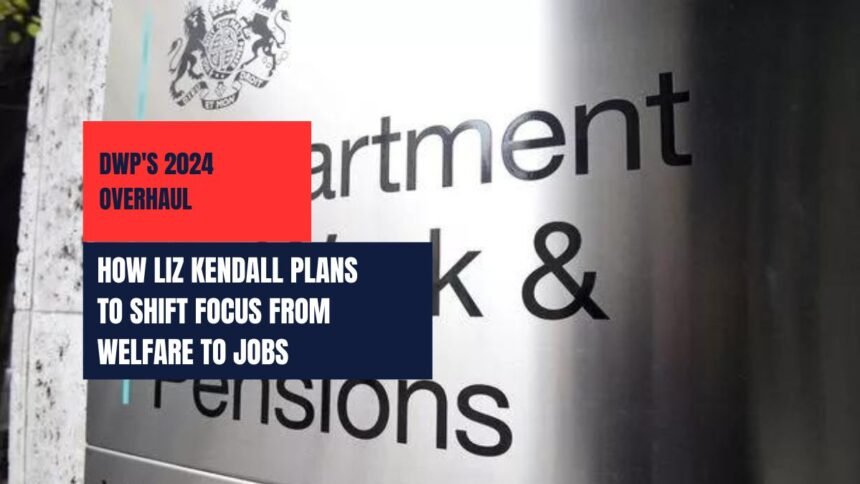In 2024, the Department for Work and Pensions (DWP) will undergo significant changes under the potential Labour government, as announced by the new minister, Liz Kendall. This shift will prioritize employment over welfare management. During her speech in Barnsley, Kendall outlined a comprehensive plan to refocus the DWP’s efforts on enhancing employability. The approach aims to address broader factors affecting employment, such as healthcare, skills development, childcare, and transportation.
Key Points from Kendall’s Speech
| Issue | Details |
|---|---|
| Dire Labour Market Inheritance | Kendall highlighted several critical issues inherited from the past 14 years: |
| Employment Rates | The UK is the only G7 country with an employment rate that hasn’t returned to pre-pandemic levels. |
| Health and Disability | 2.8 million people are out of work due to health issues or disabilities. |
| Youth Employment | 1 in 8 young people lack education, employment, or training. |
| Benefit Spending | Spending on sickness and disability benefits will rise by £30 billion over the next five years. |
| Job Quality | Many individuals are stuck in low-paid, poor-quality jobs with limited prospects. |
New Approach to Employment Support
Kendall criticized the current system of employment support, describing it as outdated. She stressed that the DWP’s focus on Universal Credit has overlooked crucial areas such as health, skills, childcare, and transport. She proposed a new approach focused on creating “employment opportunities for all” and aimed for an 80% employment rate with better job quality and higher earnings.
| New Approach | Details |
|---|---|
| Holistic Support | Address broader issues like health, skills, childcare, and transport. |
| Employment Opportunity | Aim for an 80% employment rate with improved job quality. |
| System Overhaul | Shift focus from outdated Universal Credit system to more comprehensive support. |
Empowering Local Leaders and Tailored Schemes
A significant part of Kendall’s plan involves empowering local leaders to address economic inactivity. Local areas will be given the responsibility and resources to create integrated work, health, and skills programs tailored to their communities. Kendall believes this will allow for more customized and effective solutions.
| Local Empowerment | Details |
|---|---|
| Responsibility | Local areas will design and implement integrated programs. |
| Resources | Allocation of resources to local leaders for tailored solutions. |
| Integrated Programs | Combine work, health, and skills support for better outcomes. |
Labour Market Advisory Board
To support these changes, a new Labour Market Advisory Board will be established, chaired by Paul Gregg, former Director of the Centre for Analysis of Social Policy at the University of Bath. This board will offer labor market insights and advice, meeting quarterly to guide the DWP’s efforts.
| Advisory Board | Details |
|---|---|
| Chair | Paul Gregg, former Director of the Centre for Analysis of Social Policy. |
| Purpose | Provide labor market insights and advice. |
| Meetings | Quarterly meetings to guide DWP efforts. |
White Paper and Future Plans
The upcoming Government white paper will detail a comprehensive strategy to boost employment. Key components include:
| White Paper Plans | Details |
|---|---|
| National Service | A national jobs and career service to assist people entering and progressing in the workforce. |
| Local Plans | New work, health, and skills plans led by local leaders for the economically inactive. |
| Youth Guarantee | A guarantee for all young people aged 18 to 21. |
This initiative is part of a broader effort to enhance employment, including the launch of Skills England and efforts to reduce NHS waiting lists. The goal is to create a healthier society and economy.
Conclusion
Liz Kendall’s new mandate for the DWP represents a major shift from focusing primarily on welfare benefits to actively promoting employment. By addressing broader factors affecting job readiness and empowering local leaders to create tailored solutions, this plan aims to improve job quality and increase the employment rate. The ambitious reforms seek to ensure that Britain is working again and to create a more dynamic, inclusive labor market.
FAQ’s
What is the main goal of the DWP’s 2024 reform?
The main goal of the DWP’s 2024 reform is to shift focus from managing welfare benefits to actively promoting employment. This includes addressing broader factors affecting job readiness, such as healthcare, skills, childcare, and transportation, aiming for a higher employment rate and better job quality.
How will local leaders be involved in the new DWP approach?
Local leaders will be given the responsibility and resources to create tailored programs that integrate work, health, and skills support for their communities. This decentralized approach is intended to address economic inactivity more effectively and provide customized solutions.
What is the role of the Labour Market Advisory Board in the new reform?
The Labour Market Advisory Board, chaired by Paul Gregg, will provide labor market insights and advice to guide the DWP’s efforts. The board will meet quarterly to ensure the new employment support strategies are effective and aligned with current labor market needs.





